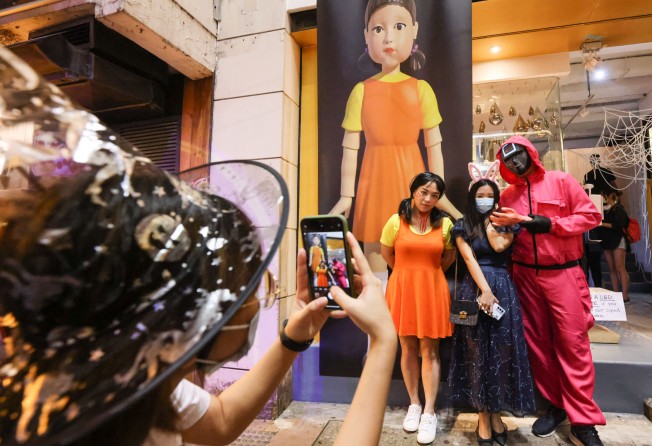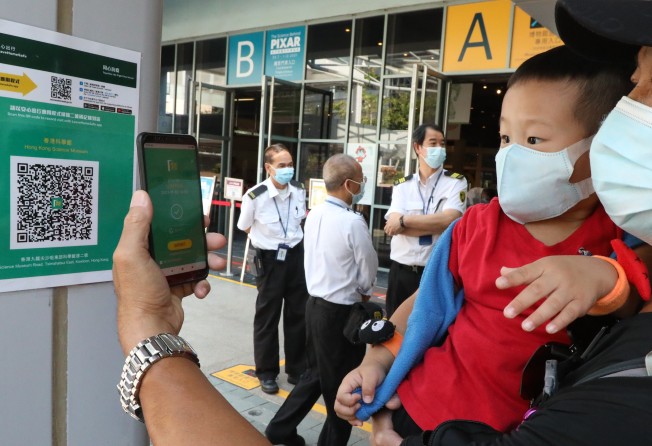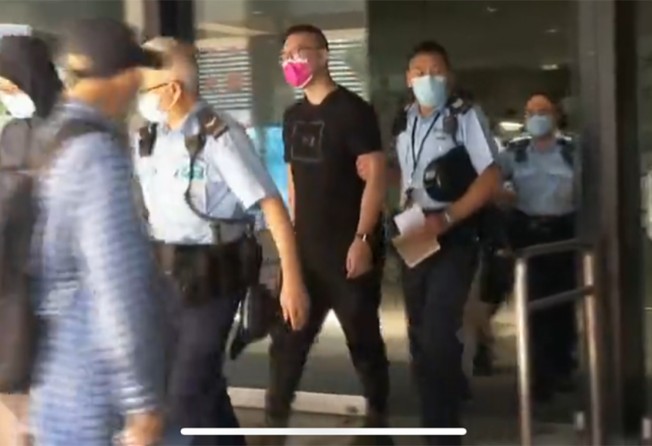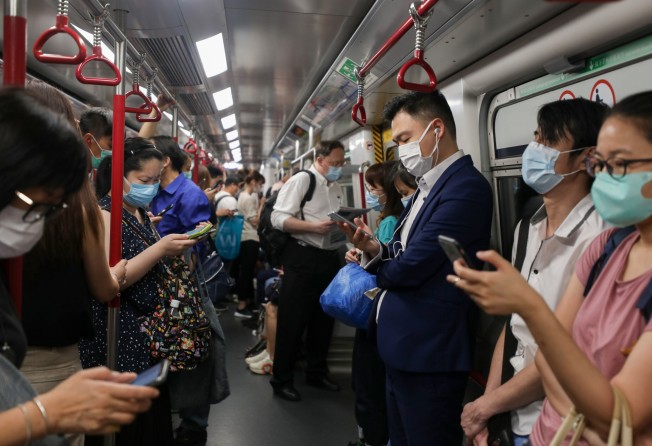
Rush to buy an extra smartphone for contact-tracing app shows typical Hong Kong ingenuity - but pursuit of privacy is doomed to fail
- The Hong Kong government’s Covid-19 contact-tracing app LeaveHomeSafe has many worried about their personal data
- Fighting fire with fire, some are buying a second phone to load the app, while others resorted to a fake app or a screenshot of the official app

With no public holidays to look forward to in November, it is often viewed as one of the most dreaded months in Hong Kong. And it’s going to be twice as hard this year, since we were somewhat spoiled by a dynamic October.
Last month, apart from a couple of statutory holidays, we also had an unexpected typhoon “holiday”. And to top it off, Halloween weekend saw revellers donning Squid Game-themed costumes. There were hot pink boiler suits and green tracksuits pouring into streets across the city.
How exciting it was to be in the midst of such a carnival atmosphere, something that has become quite rare in Hong Kong since the threat of the pandemic began last year.
And then comes November, when even Squid Game fever seems to be dissipating in Hong Kong (and everywhere else).

But when life seems to be returning to the normal and the mundane, a new fad has emerged and elevated the pulse of the city, again.
Many Hongkongers are clamouring to buy smartphones. They are not trying to catch up on the latest models, but merely snapping up a second phone specifically to load the official government app LeaveHomeSafe for Covid-19 contact tracing.
However, these Hongkongers have not been motivated by an overwhelming sense of civic duty, but rather by self-preservation. The reason is that they don’t want to install the app on their personal phone. This is because they fear that the app will access their browsing data and personal information.
Since November 1, it has been compulsory for anyone except the very young and old entering public buildings to use the LeaveHomeSafe app. Paper registration will no longer be accepted.
The app was launched in November 2020 and when its use was still voluntary, many Hongkongers were resistant to using it. This was out of fear of having their personal data collected and having the app track their whereabouts.

Now that the use of this app is compulsory, many Hongkongers are finding ways to circumvent the rule such as by acquiring a second phone just for this purpose. This has prompted an unexpected surge in smartphone demand.
Unsurprisingly, the mobile phone market has swiftly responded to the increased demand from consumers by offering older and cheaper models priced from HK$900 (US$115) to HK$1,400.
Some phone retailers have conjured some catchy sales slogans, and have gone as far as to boast that their offer is the “real deal” that guarantees users that they will truly “leave home safe” – a term that mocks the name of the government app.
The spare-phone strategy has already been heavily criticised. Although some are warning that it could be illegal, that hasn’t stopped the rush of people snapping up any spare mobiles, left, right and centre.
They seem to believe that by owning a second phone, they can fly under the radar and avoid detection by big-data companies. Given the notoriety of big-data firms and their blatant disregard for privacy, this is hardly surprising.
If they want to be truly invisible to the authorities, or whoever they suspect is keeping taps on them, they’d better give up their modern existence altogether. Every single electronic device we own or use nowadays, whether mobile, desk- or homebound, is capable of accessing our data and tracking our movements, lifestyles, moods, conversations and everything we are doing or not doing, even when we are asleep.

On the one hand, Hong Kong people are gadget-obsessed. On the other hand, they have shown their willingness to go to great lengths to reclaim their privacy – but without giving up an iota of the convenience afforded by these devices.
Hong Kong government statistics show that in the period June to October 2020, more than 90 per cent of Hongkongers above 10 years of age had a smartphone. Talk about wanting to have your cake and eat it too.
Hong Kong people are full of creativity and they are not afraid to utilise it to tackle any humps and bumps in life. Their solutions are often ingenious, but they sometimes border on the ridiculous, or worse, illegal.
Earlier this week, five people were arrested for using fake versions of the Covid contact-tracing app to trick their way into a government building in Wan Chai. The fake apps were freely downloadable before the government took them down. One fake app was blatantly named Back Home Safe to mock the real McCoy.
There were also instances in which people used screenshots of the LeaveHomeSafe government app to pretend they had scanned the health QR code so as to bypass Covid-19 rules.
Well, as the adage goes, “The end doesn’t justify the means.” Whatever their concerns, whether they are driven by fear, mistrust or mischief, they shouldn’t let their creativity get the better of them. It’s never right to resort to dishonest or criminal behaviour.
Perhaps they could better spend their energies on more noble pursuits in future.
Luisa Tam is a Post correspondent who also hosts video tutorials on Cantonese language that are now part of Cathay Pacific’s in-flight entertainment programme